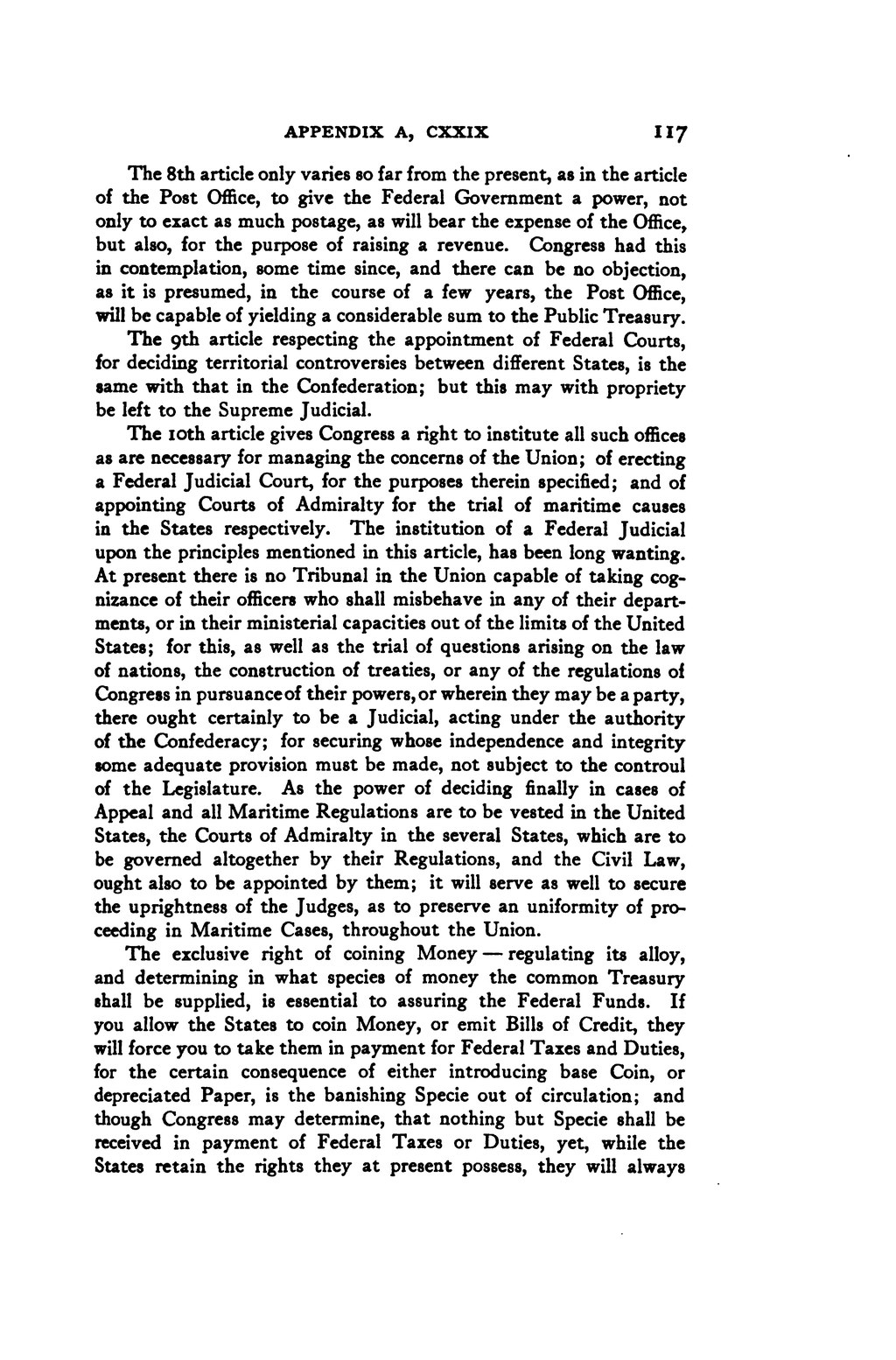The 8th article only varies so far from the present, as in the article of the Post Office, to give the Federal Government a power, not only to exact as much postage, as will bear the expense of the Office, but also, for the purpose of raising a revenue. Congress had this in contemplation, some time since, and there can be no objection, as it is presumed, in the course of a few years, the Post Office, will be capable of yielding a considerable sum to the Public Treasury.
The 9th article respecting the appointment of Federal Courts, for deciding territorial controversies between different States, is the same with that in the Confederation; but this may with propriety be left to the Supreme Judicial.
The 10th article gives Congress a right to institute all such offices as are necessary for managing the concerns of the Union; of erecting a Federal Judicial Court, for the purposes therein specified; and of appointing Courts of Admiralty for the trial of maritime causes in the States respectively. The institution of a Federal Judicial upon the principles mentioned in this article, has been long wanting. At present there is no Tribunal in the Union capable of taking cognizance of their officers who shall misbehave in any of their departments, or in their ministerial capacities out of the limits of the United States; for this, as well as the trial of questions arising on the law of nations, the construction of treaties, or any of the regulations of Congress in pursuance of their powers, or wherein they may be a party, there ought certainly to be a Judicial, acting under the authority of the Confederacy; for securing whose independence and integrity some adequate provision must be made, not subject to the controul of the Legislature. As the power of deciding finally in cases of Appeal and all Maritime Regulations are to be vested in the United States, the Courts of Admiralty in the several States, which are to be governed altogether by their Regulations, and the Civil Law, ought also to be appointed by them; it will serve as well to secure the uprightness of the Judges, as to preserve an uniformity of proceeding in Maritime Cases, throughout the Union.
The exclusive right of coining Money—regulating its alloy, and determining in what species of money the common Treasury shall be supplied, is essential to assuring the Federal Funds. If you allow the States to coin Money, or emit Bills of Credit, they will force you to take them in payment for Federal Taxes and Duties, for the certain consequence of either introducing base Coin, or depreciated Paper, is the banishing Specie out of circulation; and though Congress may determine, that nothing but Specie shall be received in payment of Federal Taxes or Duties, yet, while the States retain the rights they at present possess, they will always
